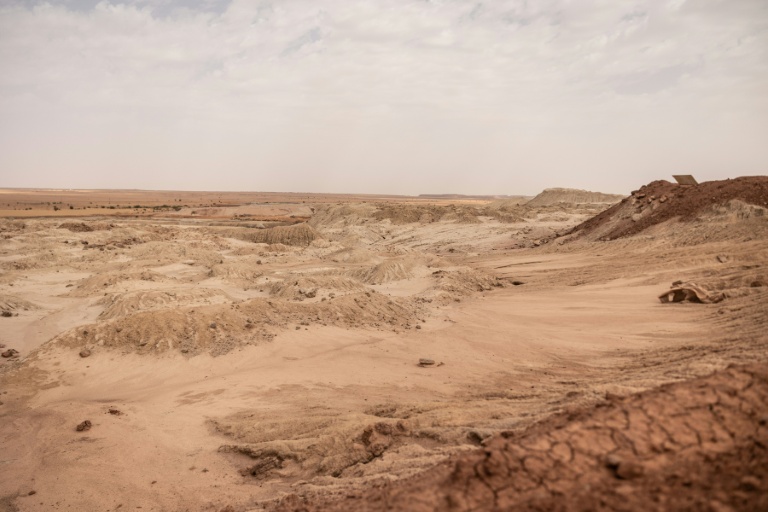Operating behind some of the Middle East’s most recent and devastating terrorist attacks is a highly organized group of clerics, military commanders and religious zealots orchestrating events from across the Persian Gulf. Despite 40 years of U.S. sanctions, Iranian aggression is far worse today than after the inception of the Islamic Republic.
But Tehran’s ambitions will backfire and inevitably lead to Iran’s implosion.
Tehran still brazenly provides billions in cash, missiles and oil transfers to its terrorist proxies. Experts indicate that Hezbollah receives $700 million, and Hamas at least $70 million, on an annual basis. With a militia network that may include as many as 200,000 fighters, Iran’s revolutionary campaign has infiltrated well into the political landscapes of Lebanon, Syria, Iraq, Yemen, Bahrain and the Palestinian territories, with little consequence.
To make matters worse, reports by The International Atomic Energy Agency reveal expansions underway at Iran’s key nuclear plants, moving them one step closer to reaching levels capable of producing bombs.
This is a terrifying prospect for the Arab world.
Iran’s pursuit for regional supremacy has been concerningly successful. The 1979 revolution provided Iran with an opportunity to reverse the historical marginalization of Shia communities in the Arab world and to restore the might of the Persian empire. Iran’s Islamic Revolutionary Guard Corps is mandated to expand its Islamic revolution and defend the Shia identity.
However, history has taught us that few empires have been able to withstand the unrelenting foreign and domestic pressures that come with overreaching territorial expansion. The Soviet Union and Nazi Germany learned this the hard way. If Tehran continues its empire-building project, it will eventually succumb to these consequences — it’s only a matter of when and how.
The Iranian regime understands that we no longer live in a world where empires are built through combat and conquest. Nations today are capable of defending themselves with their armies; they have built strong international alliances and are part of a globalized market with necessary dependencies — even between enemy countries — that cannot be jeopardized.
Their aim of building a modern-day Persia requires a nuanced, 21st-century strategy that can delicately balance power and aggression without invoking a harsh response from its enemies. Strategically, experts argue that decentralized proxy cells allow Iran to fight its conflicts outside its borders, while maintaining plausible deniability.
But therein lies the first problem: Iran has developed a precarious dependence on third-party surrogates to fight its overseas battles. Its affiliates run the risk of growing powerful and unwieldy. These actors may not have mastered the delicate art of political maneuvering, potentially implicating Iran in direct conflict against more sophisticated armies.
We are seeing these realities quickly unfold in Israel and Lebanon.
Hezbollah’s reckless launch of 8,000 rockets directed at Israel in defense of its ally, Hamas, has resulted in the assassination of Hezbollah’s leader, Hassan Nasrallah, one of the most influential and vital partners of the Islamic Republic. Iran’s Revolutionary Guard has retaliated with a barrage of 180 missiles launched into Israel, most of which were successfully intercepted — an unprecedented direct strike from Iranian territory, and the first time in 45 years that Iran has launched an attack on Israel from within its own borders.
In his recent address to the United Nations General Assembly, Benjamin Netanyahu warned, “If you strike us, we will strike you. There is no place in Iran that the long arm of Israel cannot reach.” Following the missile barrage, Netanyahu responded that Iran “made a major mistake tonight and will pay for it,” suggesting that massive consequences are ahead for Iran’s ruling elite.
Tehran’s list of adversaries is also growing. Last month, Canada declared the IRGC a terror organization, with increased calls for the U.K. to do the same following last year’s massacre of 1,200 Israelis. Iran is increasingly isolated, now second only to Russia as the most sanctioned country in the world.
This, along with its financial commitments to proxies, has stretched resources thin. Conflicts in Iraq, Syria and Yemen alone have reportedly cost the Iranian economy as much as $16 billion. Some reports argue that China and Russia have been successful at helping the Iranian economy mitigate these impacts, like Iran’s supply of drones to Russia. However, their relationships are purely transactional and have nothing to do with Iran’s religious values, and interests can change as quickly as shifting global dynamics.
Even mounting domestic pressures are rising. Ruled by autocrats, its population’s values are at extreme odds with the religious ideals of its regime, headed by Ayatollah Ali Khamenei. A study conducted by Netherland’s research institute GAMAAN reveals that only 40 percent of Iranians identify as Muslim. And yet, their regime insists on strengthening repressive policies.
Since the 2022 protests over Mahsa Amini, parliament has passed a new “hijab and chastity” bill imposing harsher penalties on women’s dress. Human Rights Watch also reported intensified crackdowns on dissenting students, teachers and musicians like Toomaj Salehi. Supporters of the regime argue that Tehran has shown resilience amid protests before, with soldiers ready for immediate mobilization. But there is a growing disconnect between Iran’s youth, who make up more than 60 percent of the population, and the regime’s expansionist ambitions. This divide may soon reach a tipping point amid mounting international pressures, especially as events in the region continue to escalate rapidly.
Israel, the U.S. and their international allies should support Iran’s brave reformists who are willing to stand up against their regime and fight for freedom and peace. It is time for us to rally with the Iranian people and support individuals looking to champion the values that promote life, not terror.
Sally Michael is pursuing a master’s degree in conflict and terrorism at The University of Auckland in New Zealand.







